Your cart is currently empty!
Search results for: “72”
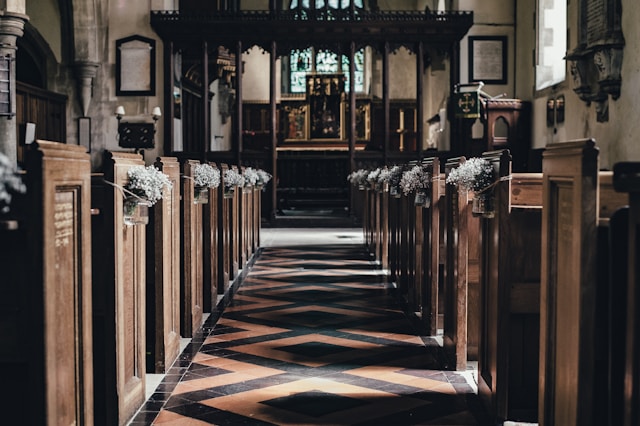
Zion Lutheran Church: A Guiding Light for Faith and Community
Zion Lutheran Church: A Historical Perspective
Zion Lutheran Church, located in the heart of Holyoke, Massachusetts, has been a beacon of faith and community for over 150 years. Founded in 1867 by a small group of German immigrants, the congregation quickly grew and became a pillar of the city’s Lutheran community.
The church building, constructed in 1872, is a testament to the architectural skills of the era. The Gothic-style structure, with its towering steeple and intricate stained-glass windows, remains a landmark in the city today.
A Vibrant and Diverse Community
Today, Zion Lutheran Church is home to a diverse congregation of over 200 members. The church offers a wide range of worship services, including traditional and contemporary services, and is actively involved in outreach programs that serve the Holyoke community and beyond.
Programs and Ministries
- Weekly Sunday School for children and youth
- Confirmation classes for teens
- Adult Bible study and discussion groups
- Mission trips and community outreach programs
- Food pantry and soup kitchen
A Commitment to Service
Service and compassion are at the core of Zion Lutheran Church’s mission. The congregation is deeply involved in social justice issues and works closely with local organizations to address the needs of the community.
The church’s food pantry, which serves hundreds of families each month, is a testament to its commitment to helping those in need. Additionally, Zion Lutheran Church actively supports local homeless shelters and soup kitchens.
A Welcoming and Inclusive Community
Zion Lutheran Church welcomes all people, regardless of their background or beliefs. The congregation is committed to creating a safe and inclusive environment where everyone feels valued and respected.
The church offers a variety of programs and events that are open to the entire community, including concerts, lectures, and community gatherings. Zion Lutheran Church believes in the power of diversity and celebrates the different cultures and perspectives that make up the Holyoke community.
Zion Lutheran Church: A Beacon of Hope
For over 150 years, Zion Lutheran Church has been a beacon of hope and guidance for the people of Holyoke. The church’s unwavering commitment to faith, community, and service has made it a vital part of the city’s fabric.
As Zion Lutheran Church looks towards the future, it remains committed to its mission of sharing the love of God with all who enter its doors. The church will continue to be a place of worship, fellowship, and service, where people from all walks of life can find solace, inspiration, and purpose.
Additional Information
Contact Information and Location
Zion Lutheran Church
511 Hampden Street
Holyoke, MA 01040
(413) 534-7259Worship Services
* Sunday Worship: 10:00 AM (Traditional)
* Sunday Worship: 11:30 AM (Contemporary)Upcoming Events
For a full listing of upcoming events, please visit the church’s website: www.zionlutheranchurch.org
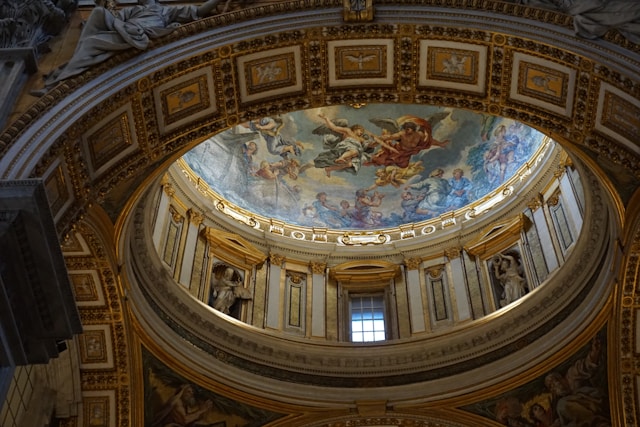
Unveiling the History and Legacy of the First Congregational Church
Origins and Establishment
The First Congregational Church, often referred to as the “mother church” of American Congregationalism, traces its roots to the founding of the Massachusetts Bay Colony in the 17th century. In 1629, a group of English Puritans led by John Winthrop established a church in Salem, which later became known as the First Church of Salem.
Pilgrim and Puritan Roots
The origins of the First Congregational Church can be traced to the Separatist movement within the Church of England during the reign of Queen Elizabeth I. Separatists, like the Pilgrims who founded Plymouth Colony, believed that the Church of England was too corrupt and sought to establish their own independent congregations based on biblical principles.
Theological Beliefs and Church Governance
Congregational Polity
The First Congregational Church adheres to the principle of congregational polity, which holds that each local congregation is autonomous and self-governing. This means that the church is led by a group of elected elders and deacons who are responsible for the spiritual and administrative affairs of the congregation.
Calvinist Theology
The First Congregational Church holds to the Calvinist tradition, which emphasizes the sovereignty of God, the depravity of human nature, and the need for salvation through faith in Jesus Christ. Calvinist theology also places a strong emphasis on personal sanctification and the importance of a holy life.
Pastoral Leadership and Notable Members
Prominent Pastors
The First Congregational Church has been served by a succession of influential pastors over the centuries, including:
- John Cotton (1633-1652): A leading Puritan divine and author of the influential catechism, “Milk for Babes.”
- Increase Mather (1664-1723): A prominent Puritan scholar, theologian, and president of Harvard College.
- John Hancock (1780-1793): A signer of the Declaration of Independence and the first governor of Massachusetts.
Notable Members
The First Congregational Church has also been home to many notable members, including:
- Benjamin Franklin: A founding father of the United States and a member of the church for many years.
- Paul Revere: A silversmith and a member of the Sons of Liberty, who alerted the militia to the arrival of the British in 1775.
- Abigail Adams: The wife of President John Adams and an active member of the church.
Historic and Architectural Significance
Meetinghouse and Burial Ground
The First Congregational Church has occupied several meetinghouses over the centuries, with the current building located on Washington Street in downtown Boston. The original meetinghouse was built in 1639, and the present structure dates back to 1809.
The church is notable for its beautiful Georgian architecture and its association with many important historical events. The Boston Massacre took place just steps away from the meetinghouse in 1770, and the church was used as a barracks by British troops during the Revolutionary War.
Grand Burying Ground
Adjacent to the meetinghouse is the Grand Burying Ground, the final resting place of many prominent Bostonians, including John Hancock, Samuel Adams, and Paul Revere. The graveyard is a historic landmark and a poignant reminder of the church’s long history and its connection to the city of Boston.
Modern Day and Future Vision
Today, the First Congregational Church continues to serve as an active and vibrant community of faith. The congregation is committed to its historic roots while also embracing contemporary challenges and opportunities.
Inclusive and Welcoming
The First Congregational Church welcomes people from all walks of life, regardless of race, gender, sexual orientation, or religious background. The church strives to create an inclusive and welcoming environment where all are valued and respected.
Social Justice Advocacy
The First Congregational Church has a long history of social justice advocacy, dating back to its early days as a supporter of the abolitionist movement. Today, the church remains active in addressing issues such as poverty, homelessness, and racial inequality.
Outreach and Ministries
The First Congregational Church offers a variety of outreach programs and ministries, including:
- Community meals: The church provides free meals to those in need on a regular basis.
- After-school programs: The church offers after-school tutoring and enrichment programs for children in the surrounding neighborhood.
- Music and arts programs: The church has a strong music and arts program, with a choir, a bell choir, and a variety of other performing groups.
Conclusion: A Legacy of Faith, Service, and Transformation
The First Congregational Church has a rich and storied history that spans nearly four centuries. From its humble beginnings as a small congregation of English Puritans to its current status as a vibrant and inclusive community of faith, the church has played a pivotal role in shaping the religious, social, and cultural landscape of Boston and beyond.
The church’s legacy is one of faith, service, and transformation. It is a place where people gather to worship, learn, and make a difference in the world. As the church looks to the future, it remains committed to its historic mission of serving as a beacon of hope and inspiration for all who seek it.
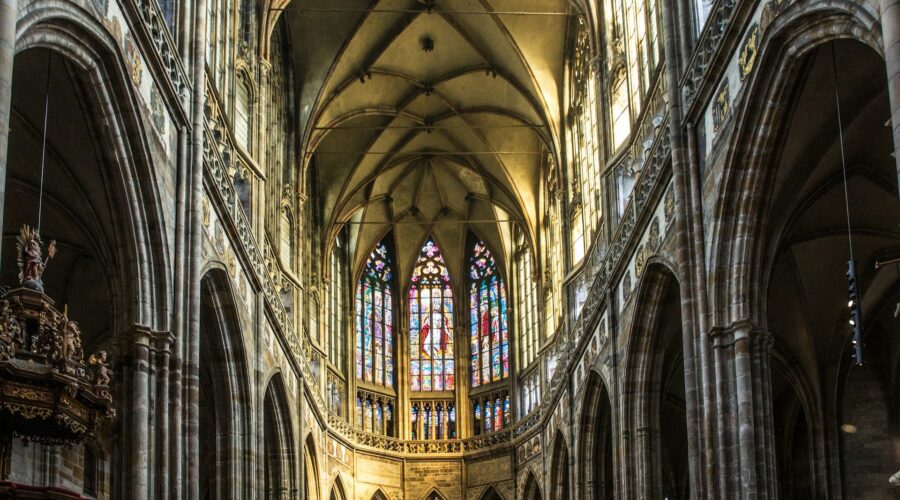
St. Alphonsus Liguori: A Guiding Light in Morality and Devotion
Saint Alphonsus Liguori, revered as the Doctor of Moral Theology, was an eminent figure in the Catholic Church renowned for his extensive writings on moral theology and his extraordinary devotion to the Blessed Virgin Mary.
Early Life and Education
Birth and Family
Alphonsus Maria de’ Liguori was born on September 23, 1696, in Marianella, Italy, to a wealthy and influential family. His father, Giuseppe Liguori, was a naval captain, while his mother, Anna Cavalieri, was a devout Catholic.
Education
Alphonsus displayed exceptional academic prowess from a young age. He excelled in the study of law, earning a doctorate in civil and ecclesiastical law at the University of Naples in 1713.
Conversion to the Priesthood
Disillusionment and Discernment
Despite his promising legal career, Alphonsus experienced a profound conversion experience in 1723. After losing an important case, he was deeply disillusioned by the corrupt and unjust practices prevalent in the legal profession.
Seeking solace, Alphonsus turned to prayer and spiritual reflection. He discerned a call to the priesthood, believing he could serve God and humanity more effectively in this role.
Ordination and Early Ministry
Alphonsus was ordained a priest on December 21, 1726. He dedicated himself to serving the poor and marginalized in the slums of Naples. His compassionate and zealous ministry earned him great respect and admiration from the people.
Founding the Redemptorists
Mission to the Poor and Abandoned
In 1732, Alphonsus founded the Congregation of the Most Holy Redeemer, also known as the Redemptorists. The primary mission of the congregation was to preach to the poor and abandoned in remote and neglected areas.
Rule of Life
Alphonsus authored the Rule of Life for the Redemptorists, emphasizing humility, simplicity, and apostolic zeal. The congregation quickly grew, establishing communities throughout Italy and beyond.
Moral Theology and Spiritual Writings
Summa Theologica Moralis
Alphonsus Liguori is widely recognized as one of the greatest moral theologians of all time. His magnum opus, Summa Theologica Moralis, published in 1748, is a comprehensive treatise on moral theology that remains an authoritative source in Catholic moral teaching.
Other Notable Works
In addition to his Summa Theologica Moralis, Alphonsus wrote numerous other spiritual and theological works, including:
- The Glories of Mary
- The Practice of the Love of Jesus Christ
- The Way of Salvation
- The Hidden Treasure
Devotion to the Blessed Virgin Mary
Marian Advocate
Alphonsus Liguori had an ardent devotion to the Blessed Virgin Mary. He believed that devotion to Mary was essential for Christian perfection.
The Glories of Mary
Alphonsus’s book “The Glories of Mary” is considered one of the most comprehensive and eloquent treatises on Marian devotion ever written.
Later Years and Sainthood
Bishop of Sant’Agata de’ Goti
In 1762, Alphonsus was appointed Bishop of Sant’Agata de’ Goti in southeastern Italy. He served as bishop for thirteen years, tirelessly ministering to his flock.
Decline in Health and Death
In his later years, Alphonsus’s health declined due to severe arthritis and other ailments. He died on August 1, 1787, at the age of 90.
Canonization
Alphonsus Liguori was canonized a saint by Pope Gregory XVI in 1839. He is considered the patron saint of confessors, moral theologians, and the city of Naples.
Legacy
Doctor of Moral Theology
Saint Alphonsus Liguori’s contributions to moral theology are immense. His writings continue to guide and inspire theologians and spiritual directors worldwide.
Marian Devotion
Alphonsus’s profound devotion to the Blessed Virgin Mary has left an enduring legacy in the Catholic Church. His writings and teachings on Marian devotion continue to inspire and enrich the spiritual lives of countless believers.
Founder of the Redemptorists
The Congregation of the Most Holy Redeemer, founded by Saint Alphonsus Liguori, remains a vibrant and active religious congregation today. The Redemptorists continue to carry out Alphonsus’s mission of preaching to the poor and abandoned in all corners of the globe.
Table: Key Dates in the Life of Saint Alphonsus Liguori
| Event | Date |
|—————–|—————|
| Birth | September 23, 1696 |
| Conversion | 1723 |
| Ordination | December 21, 1726 |
| Founding of the Redemptorists | 1732 |
| Publication of Summa Theologica Moralis | 1748 |
| Appointed Bishop of Sant’Agata de’ Goti | 1762 |
| Death | August 1, 1787 |
| Canonization | 1839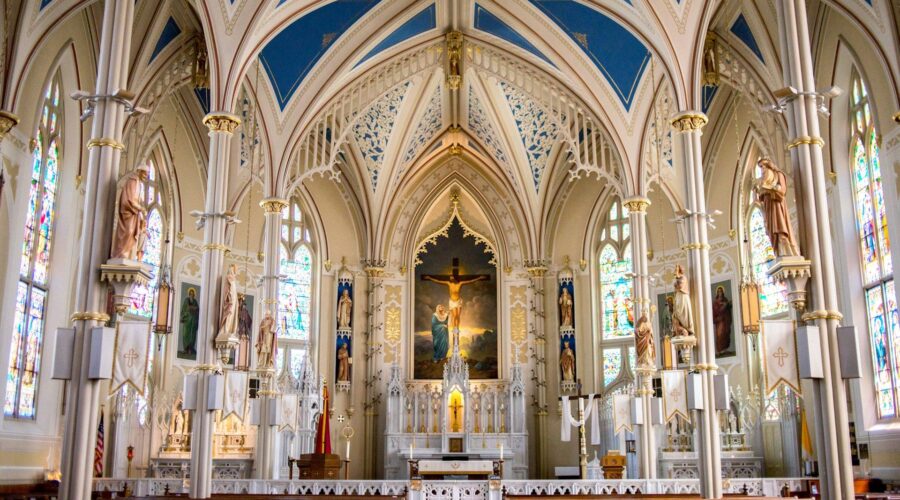
Discover the Rich History and Inspiring Legacy of Bethel Baptist Church
Introduction
Bethel Baptist Church, a beacon of faith and community, stands as a testament to the enduring power of the Christian spirit. With a legacy spanning centuries, the church has served as a spiritual home for countless individuals, fostering growth, unity, and service. This comprehensive guide explores the fascinating history, inspiring mission, and vibrant community of Bethel Baptist Church.
Historical Timeline
1688: Founded by a group of devout Baptists in Jamaica, the church’s initial services were held in homes and private gatherings.
1725: The congregation acquired land and built a chapel, solidifying their presence in the Jamaican landscape.
1845: Following the abolition of slavery, the church played a pivotal role in supporting and educating the newly emancipated population.
1921: The church relocated to its current location in downtown Kingston, becoming a prominent landmark in the city.
Present Day: Bethel Baptist Church continues to thrive as a vibrant and active congregation, reaching out to the local community and beyond.
Mission and Values
Mission Statement: “To lead people to Christ, nurture their faith, and equip them for service.”
Core Values:
- Biblical Faithfulness: Adherence to the teachings and principles of the Bible.
- Christ-Centered Worship: Exalting Jesus Christ as the central figure of faith and worship.
- Community Engagement: Actively serving and supporting the needs of the surrounding community.
li>Spiritual Growth: Emphasizing the continuous journey of personal and spiritual development.
Vibrant Community
Bethel Baptist Church is a thriving hub of activity and fellowship. Its congregation consists of individuals from diverse backgrounds, drawn together by a shared faith and a desire for spiritual growth.
The church offers a wide range of ministries and programs tailored to the needs of its members, including:
- Worship Services: Regular Sunday and mid-week services featuring uplifting music, inspiring messages, and communal prayer.
- Small Groups: Intimate gatherings where members engage in Bible study, prayer, and fellowship.
- Youth Ministry: Programs and activities designed to nurture the faith and spiritual growth of young people.
- Outreach Programs: Initiatives focused on providing practical help and spiritual support to those in need within the wider community.
Social Impact
Bethel Baptist Church plays a significant role in the social fabric of Kingston and beyond. Its outreach efforts extend to various areas, including:
- Education: Supporting local schools and providing scholarships to deserving students.
- Health: Hosting health fairs, offering support to the sick, and advocating for affordable healthcare.
- Homelessness: Providing shelter, food, and counseling services to those experiencing homelessness.
li>Community Development: Partnering with local organizations to address issues of poverty, unemployment, and youth violence.
Leadership and Pastors
Bethel Baptist Church has been blessed with a line of dedicated and influential pastors who have guided its spiritual journey and led it to prominence. Notable pastors include:
- Rev. Thomas Burchell (1823-1844): A renowned Baptist minister who led the church through a period of significant growth and social activism.
- Rev. William Knibb (1845-1846): A prominent abolitionist and advocate for the rights of the enslaved population.
- Rev. Edward Hewitt (1921-1946): Under his leadership, the church relocated to its current location and expanded its outreach programs.
- Rev. Dr. Karl Johnson (1979-Present): The current senior pastor, Dr. Johnson has overseen the church’s continued growth and its focus on community engagement.
Membership and Involvement
Becoming a member of Bethel Baptist Church is open to those who profess faith in Jesus Christ as their Lord and Savior.
Membership Benefits:
- Access to all church ministries and programs.
- Opportunities for spiritual growth and service.
- A sense of community and belonging.
Individuals interested in joining the church can attend services, participate in small groups, and meet with the pastor or a designated membership committee to discuss their faith journey and intentions.
Contact Information
Bethel Baptist Church
192 King Street, Kingston, Jamaica
Phone: (876) 922-2396
Email: [email protected]
Website: www.bethelbaptistchurch.org
Conclusion
Bethel Baptist Church stands as a beacon of hope and transformation in the heart of Kingston. With a rich history rooted in faith and a vibrant community dedicated to serving the needs of others, the church continues its mission of leading people to Christ, nurturing their faith, and equipping them for service in the world.

Discover Mercy Hill Church: A Vibrant Hub of Faith and Community
About Mercy Hill Church
Mercy Hill Church is a multi-site evangelical Christian church with its main campus located in the city of Fayetteville, North Carolina. Founded in 2007 by Lead Pastor Mark Creech, the church has since expanded to include eight campuses across North Carolina, as well as an online presence.
Mercy Hill emphasizes biblical teaching, authentic worship, and a deep commitment to serving its community. It believes in empowering individuals to live out their faith with purpose and generosity.
Core Values
- Love God: Putting God first in all aspects of life.
- Love Others: Demonstrating compassion, kindness, and hospitality towards others.
- Follow Jesus: Embracing the teachings of Jesus Christ as the foundation for living.
li>Serve Others: Actively engaging in service to the community and the world.
Ministries and Programs
Mercy Hill Church offers a wide range of ministries and programs to meet the diverse needs of its congregation and community.
Worship Services
Mercy Hill holds weekly worship services at all of its campuses. These services feature contemporary music, biblical teaching, and opportunities for prayer and reflection.
Small Groups
Small groups meet regularly to foster spiritual growth, fellowship, and accountability. These groups delve into Bible study, prayer, and personal sharing in a more intimate setting.
Community Care
Mercy Hill is deeply involved in serving the community through various outreach programs. These include food pantries, support groups, and volunteer opportunities.
Missions
Mercy Hill actively supports global missions through partnerships with local churches and international organizations. The church sends teams on mission trips and provides financial support to ministries around the world.
Leadership
Mercy Hill Church is led by a team of pastors and elders who provide spiritual oversight and guidance.
Lead Pastor: Mark Creech
Lead Pastor Mark Creech has a passion for sharing the gospel and equipping believers to live out their faith. He is known for his biblical teaching and his commitment to building a vibrant and inclusive church.
Elders
The elders of Mercy Hill are responsible for providing spiritual guidance, overseeing the church’s finances, and ensuring the well-being of the congregation.
Locations and Contact Information
Main Campus:
4000 Kiplin Drive
Fayetteville, NC 28306
(910) 485-1145
Website
Contact FormOther Campuses:
Campus Address Phone Number Aberdeen 201 Campus Drive (910) 304-8600 Cary 101 Penny Road (919) 859-5400 Charlotte 6801 Morrison Boulevard (704) 509-3500 Durham 1900 West Main Street (919) 220-7200 Goldsboro 1202 Corporate Drive (919) 751-4300 Monroe 1105 Old Charlotte Highway (704) 225-7400 Wilmington 7520 Market Street (910) 524-6300 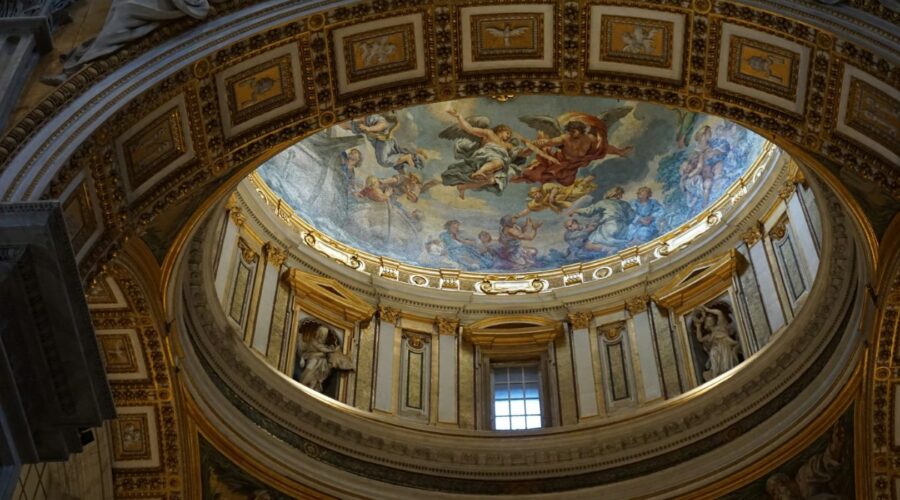
Embark on a Spiritual Odyssey: Exploring the Valley of Vision
The Valley of Vision is a remarkable collection of Puritan prayers and devotional writings that has profoundly shaped the spiritual lives of countless Christians for centuries. Written by renowned pastors and theologians of the 17th and 18th centuries, these prayers offer a window into the vibrant and deeply personal faith of the Puritan era.
Origins and Significance
The Valley of Vision was first published in 1632 and underwent several revisions over the years. The final edition, published in 1724, contains over 1,000 prayers organized into various categories, such as prayers for personal growth, spiritual warfare, and times of distress.
The Valley of Vision is a testament to the Puritans’ deep commitment to prayer as a vital part of their Christian walk. They believed that prayer was the primary means by which they could commune with God, seek His guidance, and experience His transformative grace.
Key Themes
Throughout the Valley of Vision, certain themes emerge as central to the Puritan spiritual experience:
Trust in God’s Sovereignty
The Puritans had an unwavering trust in God’s sovereign control over all things. They believed that He ordains all events, both good and bad, for the ultimate good of His people.
Dependence on Divine Grace
The Puritans recognized their own sinfulness and helplessness apart from God’s grace. They constantly sought His favor, strength, and guidance in all aspects of their lives.
Repentance and Humility
The Puritans emphasized the importance of repentance and humility as essential to a right relationship with God. They believed that true repentance involved not only acknowledging their sins but also turning away from them and seeking God’s forgiveness.
Practical Application
The Valley of Vision is not merely a historical document but a practical resource for Christian living today. Its prayers provide:
- A model for prayer: The Valley of Vision offers a diverse collection of prayers that cover a wide range of needs and situations.
- Inspiration and encouragement: The heartfelt cries and expressions of faith in these prayers can inspire and encourage believers to deepen their own prayer life.
- Guidance and support: The prayers in the Valley of Vision provide guidance and support through times of trial, temptation, and doubt.
Favorite Prayers from the Valley of Vision
Prayer Author Description A Prayer for Divine Help John Flavel A heartfelt plea for God’s assistance in times of weakness and need. A Prayer for Humility Richard Alleine A request for a heart that is humble, teachable, and mindful of its own sinfulness. A Prayer for Forgiveness William Gurnall A profound confession of sin and a plea for God’s pardon and cleansing grace. Conclusion
The Valley of Vision is an invaluable treasure that offers a glimpse into the spiritual lives of our forefathers. Its prayers provide a powerful tool for personal devotion, guiding us in the pursuit of a deeper relationship with God. By exploring this spiritual odyssey, we can glean wisdom and encouragement for our own journey of faith.
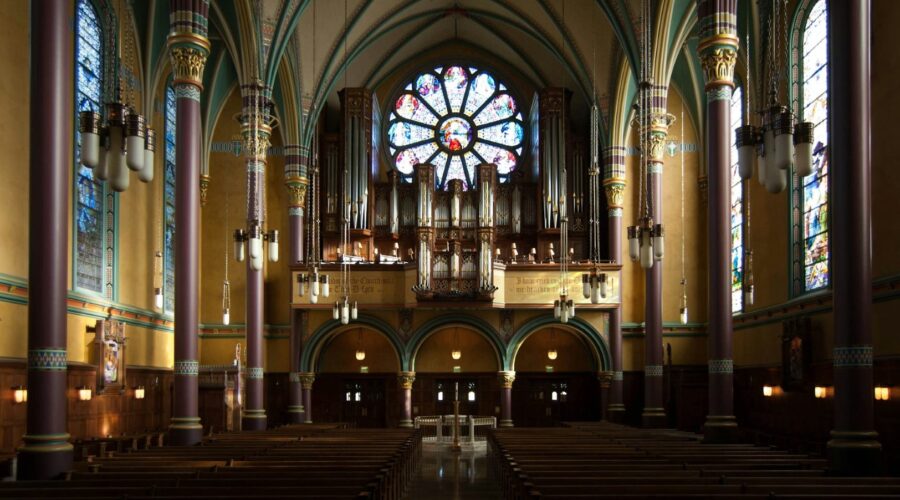
Crossroads Christian Church: A Comprehensive Guide to Faith, Community, and Service
About Crossroads Christian Church
Crossroads Christian Church is a multi-campus evangelical church with a global reach. Founded in 1981 by Pastors Mark and Gretchen Fournier, it has grown to over 100,000 members across its campuses in California, Florida, Hawaii, Nevada, and Arizona.
Crossroads is known for its engaging worship services, relevant teaching, and vibrant community life. The church emphasizes the importance of spiritual growth, discipleship, and service to others.
Core Values and Beliefs
Crossroads holds to the following core values and beliefs:
- The Bible is the inspired and authoritative Word of God.
- Jesus Christ is the only savior and Lord.
- The Holy Spirit empowers believers for Christian living.
- The church is a community of believers who gather to worship, grow, and serve.
- Every person is created in the image of God and has value.
Ministries and Programs
Crossroads offers a wide range of ministries and programs for all ages and stages of life. These include:
Worship Services
- Contemporary and traditional worship services
- Live music and dynamic preaching
- Opportunities for prayer and communion
Discipleship and Growth
- Small groups for Bible study and spiritual growth
- Classes and seminars on various Christian topics
- Mentoring programs for new and growing believers
Children and Youth Ministries
- Age-specific programs for children and youth
- Biblical teaching, games, and fun activities
- Mission trips and service opportunities
Community and Outreach
- Community outreach programs to meet local needs
- Mission trips to serve around the world
- Partnerships with local organizations and charities
Upcoming Events
For a list of upcoming events at Crossroads Christian Church, please visit their website.
Giving and Support
Crossroads is a self-funded church that relies on the generous giving of its members and attendees. There are several ways to give:
- Online giving via the church website
- Text-to-give
- Mail-in checks
- In-person giving at services
Your financial support helps Crossroads continue to minister to its members and the community.
Contact Information
To learn more about Crossroads Christian Church or to find a campus near you, please visit their website at www.crossroadschurch.com or contact them at:
- Phone: (949) 651-7200
- Email: [email protected]
- Address: 23332 Moulton Parkway, Laguna Hills, CA 92653
Conclusion
Crossroads Christian Church is a vibrant and growing community of believers committed to living out their faith in all areas of life. Whether you are seeking a spiritual home, looking to grow in your relationship with God, or simply want to make a difference in the world, Crossroads has something to offer you.

Discover the United Church of Christ: A Progressive Faith Rooted in Tradition
Introduction:
The United Church of Christ (UCC) is a mainline Protestant denomination in the United States with a rich history and a commitment to progressive values. This comprehensive guide will delve into the key aspects of the UCC, exploring its beliefs, practices, history, and impact on society.
II. Beliefs and Teachings:
A. Centrality of Jesus Christ:
The UCC holds Jesus Christ as the center of its faith, believing that he is the savior and redeemer of humankind.
B. God as Trinity:
The UCC affirms the doctrine of the Trinity, recognizing God as Father, Son, and Holy Spirit.
C. Inclusive Love and Justice:
Central to UCC beliefs is the conviction that God’s love embraces all people, regardless of race, gender, sexual orientation, or social status. The denomination actively works towards justice and equality for all.
D. Importance of Scripture and Tradition:
While the UCC emphasizes the authority of Scripture, it also values tradition and reason as guides for faith and practice.
III. Practices and Worship:
A. Congregational Polity:
The UCC operates on a congregational polity, where each local church governs itself and elects its own leaders.
B. Worship Diversity:
UCC worship services vary widely, reflecting the diversity of its congregations. Some emphasize traditional liturgy, while others incorporate contemporary music and creative elements.
C. Open Table Communion:
The UCC practices open table communion, welcoming all baptized Christians, regardless of church affiliation, to partake in the sacrament.
D. Lay Ministry:
The UCC values lay leadership, empowering members to participate in all aspects of church life.
IV. History and Timeline:
The UCC traces its roots back to the Puritan settlements in New England. Key milestones include:
- 1630: Founding of the Massachusetts Bay Colony
- 1931: Merger of the Congregational and Christian Churches
- 1957: Formation of the United Church of Christ
- 1972: Ordination of the first openly gay pastor
V. Social Impact and Outreach:
A. Advocacy for Justice:
The UCC has long been a voice for social justice, advocating for civil rights, LGBTQ+ equality, and environmental protection.
B. Service and Mission:
UCC congregations engage in a wide range of service and mission programs, addressing issues such as poverty, homelessness, and healthcare.
C. Global Partnerships:
The UCC maintains partnerships with churches and organizations around the world, fostering interfaith dialogue and collaboration.
VI. Membership and Demographics:
The UCC has over 1 million members in approximately 5,000 congregations across the United States. While it has historically been primarily Caucasian, the UCC is increasingly diverse and includes a growing number of people of color.
VII. Controversies and Challenges:
A. Same-Sex Marriage:
The UCC’s support for same-sex marriage has sparked controversy within the denomination and among some conservative Christian groups.
B. Declining Membership:
The UCC, like many mainline Protestant denominations, has experienced a decline in membership in recent decades.
VIII. Conclusion:
The United Church of Christ stands as a beacon of progressive faith, embracing inclusivity, justice, and compassion. Through its beliefs, practices, history, and social impact, the UCC continues to make a meaningful contribution to society and the world.
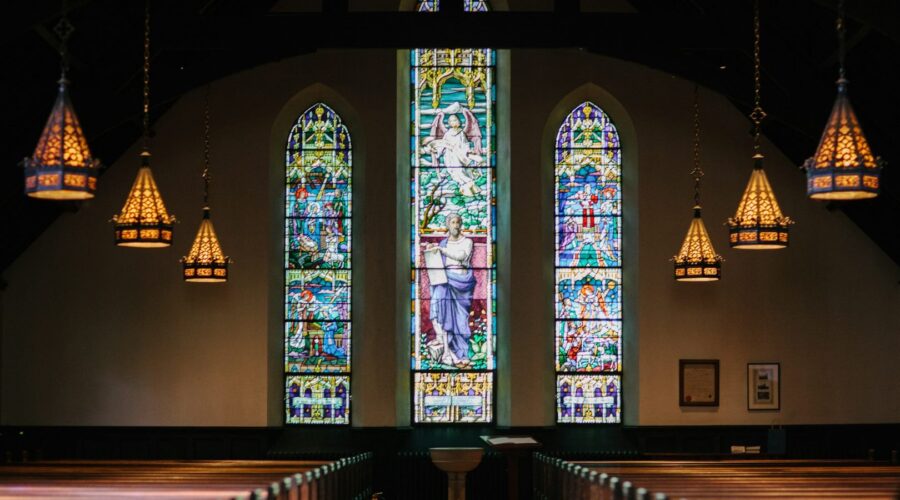
Gaudi’s Sagrada Familia: A Masterpiece of Catalan Modernism
Introduction
The Sagrada Familia is a towering masterpiece of Catalan Modernism and the most famous work of the renowned architect Antoni Gaudí. This colossal basilica, located in the heart of Barcelona, Spain, has been under construction for over a century and is still not complete. Nevertheless, the Sagrada Familia has become a symbol of Barcelona and a must-see for visitors from around the world.
History of the Sagrada Familia
The construction of the Sagrada Familia began in 1882, following the plans of the architect Francisco de Paula del Villar. However, in 1883, Gaudí took over the project and redesigned it in his unique style. Gaudí worked on the Sagrada Familia for the rest of his life, and even though he died in 1926, the basilica continues to be built according to his original plans.
The Impact of Gaudí
Gaudí’s influence on the Sagrada Familia is evident in every aspect of the building. He incorporated elements of nature, such as trees, flowers, and animals, into the design. He also used a variety of colorful mosaics and stained glass to create a vibrant and dynamic interior. Gaudí’s goal was to create a “perfect” church, one that would be both beautiful and functional.
The Architectural Features of the Sagrada Familia
The Sagrada Familia is a complex and multifaceted building, with a wealth of architectural features to explore.
The Facades
The Sagrada Familia has three facades: the Nativity Facade, the Passion Facade, and the Glory Facade. The Nativity Facade, completed in 1894, is the most elaborate and is adorned with scenes from the birth of Christ. The Passion Facade, completed in 1954, depicts the suffering and death of Jesus. The Glory Facade is still under construction, but it is expected to be completed by 2026.
The Interior
The interior of the Sagrada Familia is just as impressive as the exterior. The nave is supported by massive columns that resemble trees, and the ceiling is a kaleidoscope of colors and light. The apse is home to a stunning stained-glass window that depicts the Virgin Mary.
The Towers
The Sagrada Familia is crowned by 18 towers, which represent the 12 apostles, the four evangelists, and the Virgin Mary. The tallest tower, the central tower, is 172 meters high and is still under construction.
Visiting the Sagrada Familia
The Sagrada Familia is one of the most popular tourist attractions in Barcelona. Visitors can choose from a variety of tours, ranging from guided tours to self-guided tours. It is recommended to book tickets in advance, especially during peak season.
Tips for Visiting
* Book your tickets in advance to avoid queues.
* Visit early in the morning or late in the afternoon to avoid the crowds.
* Take your time to explore the basilica and appreciate all of its details.
* Climb the towers for a panoramic view of Barcelona.
* Visit the Sagrada Familia Museum to learn more about the history of the basilica and Gaudí’s work.Conclusion
The Sagrada Familia is a masterpiece of architecture and a testament to the genius of Antoni Gaudí. It is a must-see for visitors to Barcelona and a symbol of the city’s vibrant culture and history.
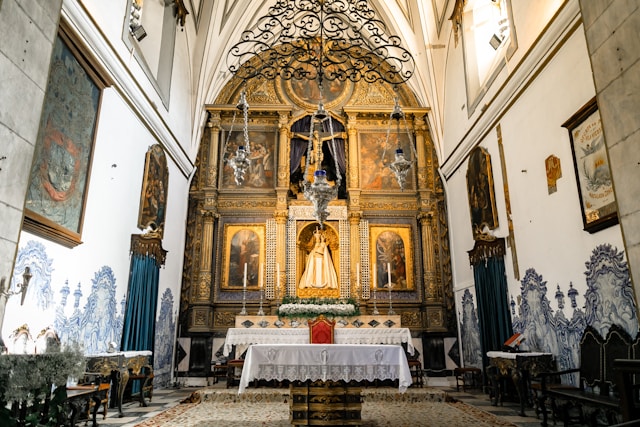
Unveiling the World Harvest Church: A Comprehensive Guide
Introduction
World Harvest Church (WHC) is a charismatic Christian megachurch headquartered in Columbus, Ohio. Founded in 1972 by Pastor Rodney Howard-Browne, WHC has grown into a global movement with churches and ministries in over 100 countries. This blog post aims to provide a comprehensive overview of WHC, exploring its history, beliefs, practices, and global impact.
History
Beginnings
In 1972, Pastor Rodney Howard-Browne established WHC in South Africa as a small Bible study group. The church rapidly grew due to its emphasis on healing and miracles.
Global Expansion
In the 1980s and 1990s, WHC began expanding internationally, establishing churches in Europe, Asia, and the Americas. The church’s focus on revival and outreach played a significant role in its global growth.
Move to the United States
In 2003, WHC’s headquarters moved to Columbus, Ohio, becoming one of the largest churches in the Midwest. The church has continued to grow and flourish, expanding its ministries and outreach programs.
Beliefs
Core Tenets
- The Trinity: God the Father, Jesus Christ the Son, and the Holy Spirit
- The Bible: Inerrant and the sole authority for faith and practice
- Salvation: By grace through faith in Jesus Christ
- The Holy Spirit: Empowers believers with gifts and empowers miracles
- Healing: Supernatural healing is available to all believers
Controversial Teachings
WHC has been involved in controversies over its stance on certain issues, such as:
- Healing Claims: The church’s emphasis on healing has been criticized by some medical professionals.
- Financial Practices: WHC has faced questions regarding its financial practices and use of donations.
- Demonization: The church’s belief in demonization has been debated by other Christian denominations.
Practices
Worship Services
WHC’s worship services are characterized by:
- Charismatic Music: Lively and emotional music with a focus on praise and worship
- Spirit-Filled Atmosphere: An emphasis on supernatural manifestations, such as speaking in tongues and prophecy
- Teachings: Preaching and Bible study that emphasize spiritual growth, healing, and evangelism
Ministries
WHC operates various ministries, including:
- Revival Center: A central hub for healing and prayer
- World Harvest Bible College: Provides theological education and training
- World Harvest Missionary Outreach: Supports missions in developing countries
- World Harvest Media: Produces and distributes Christian content
Global Impact
WHC has made a significant impact globally:
- Church Planting: Established over 1,000 churches worldwide
- Missionary Work: Supports over 500 missionaries in various countries
- Charitable Programs: Provides humanitarian aid, disaster relief, and community outreach
- Leadership Training: Conducts conferences and seminars to equip Christian leaders
Additional Information
Website and Social Media
To learn more about WHC, visit its website at www.worldharvestchurch.org. The church also maintains active social media pages on Facebook, Twitter, and Instagram.
Controversies and Criticism
WHC has faced criticism and controversies throughout its history. For more information on these issues, refer to the following resources:
- Religion News Service: World Harvest Church’s Colonel Sanders Connection
- The Christian Post: World Harvest Church Faces Lawsuit Over Abuse
- Patheos: The World Harvest Church: A Critical Look
Conclusion
World Harvest Church is a multifaceted organization with a significant impact on the global Christian landscape. From its humble beginnings as a Bible study group to its present status as a global megachurch, WHC’s journey has been marked by growth, controversy, and spiritual renewal. Whether you agree with its teachings or not, WHC’s commitment to spreading the Gospel and its emphasis on healing and miracles continue to inspire and challenge believers worldwide.
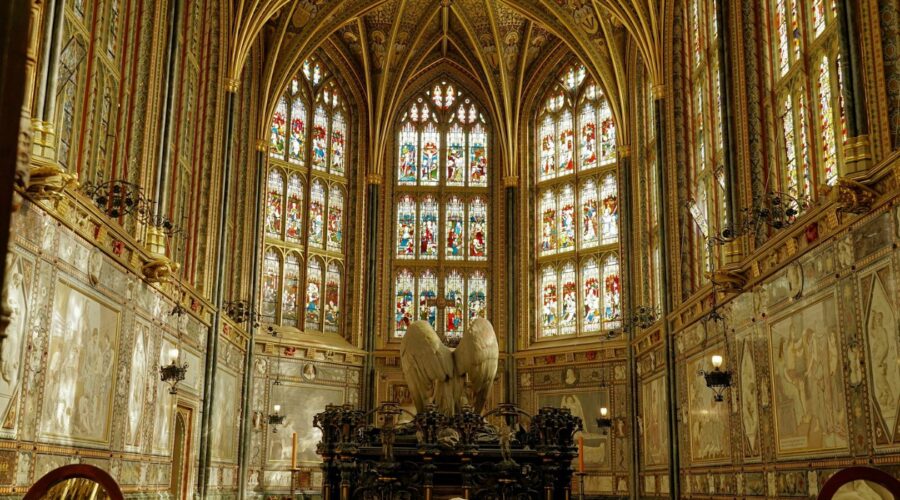
Methodism: A Comprehensive Guide to Beliefs, Practices, and History
Introduction
Methodism is a Protestant Christian movement that emerged in the 18th century in England. Founded by John Wesley, Methodism has since spread to various parts of the world and developed into several denominations, each with its unique characteristics and emphases. This guide aims to provide an overview of the key aspects of Methodism, including its beliefs, practices, and historical development.
Beliefs
Methodists adhere to the core tenets of Christianity, including:
* **Belief in the Trinity:** The Father, Son, and Holy Spirit as one God.
* **The authority of the Bible:** As the inspired Word of God.
* ** Justification by faith:** Salvation through the grace of God, received through faith in Jesus Christ.
* ** Sanctification:** The process of growing in holiness and becoming more like Christ.
* ** The Second Coming of Christ:** The belief that Jesus will return to establish a just and eternal kingdom.Distinctive Methodist Beliefs:
* **Emphasis on experiential religion:** Methodists believe in the importance of personal experience of God’s grace and forgiveness.
* **Arminianism:** Methodists believe in the free will of individuals and that salvation is not predestined.Practices
Methodist practices are designed to foster spiritual growth and community:
* **Class Meetings:** Small groups where members gather for prayer, Bible study, and mutual support.
* **Prayer Meetings:** Regular gatherings for corporate prayer.
* **Love Feasts:** Sacramental meals where members share bread and wine in remembrance of Christ’s sacrifice.
* **Sacraments:** Baptism and Holy Communion are recognized as sacraments, outward signs of inward grace.Other Methodist Practices:
* **Circuit Riding:** Preachers traveled on horseback to preach in remote areas and establish new congregations.
* **Lay Leadership:** Methodists value lay involvement in church leadership and ministry.History
Origins and Early Development:
* 1729:** John Wesley and Charles Wesley underwent a profound spiritual experience known as the “Aldersgate Experience.”
* 1739:** Methodists began to organize into “societies” with rules and accountability structures.
* 1784:** The Methodist Church in America was established after the American Revolution.Great Revivals and Expansion:
* 18th and 19th centuries:** Methodism experienced significant revivals and growth, spreading throughout England and North America.
* **Missionary Work:** Methodists established missions in various parts of the world, including Africa, Asia, and the Pacific Islands.Denominational Developments:
Over time, Methodism has developed into several denominations, each with its own unique identity:
* The United Methodist Church:** The largest Methodist denomination, formed in 1968 through the union of several Methodist bodies.
* The Wesleyan Church:** Emphasizes traditional Methodist beliefs and practices.
* **The African Methodist Episcopal Church:** Founded in the 19th century, it plays a significant role in the African American community.Conclusion
Methodism is a diverse and dynamic Christian movement with a rich history and theological heritage. Its emphasis on experiential religion, Arminianism, and community practices has shaped its distinctive identity. Today, Methodists continue to spread their message of salvation by grace and serve as a force for good in the world.
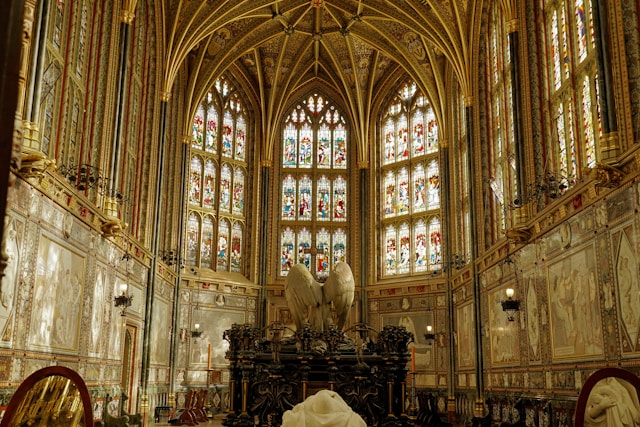
Discover the First Baptist Church of Glenarden: A Pillar of Faith and Community
In the heart of the vibrant township of Glenarden, Maryland, stands a beacon of spirituality and social impact—the First Baptist Church of Glenarden (FBCG). Established in 1872, this historic church has become an integral part of the community, offering spiritual guidance, outreach programs, and a sense of belonging to its diverse congregation.
Mission and Vision
FBCG’s mission is to “exalt Jesus Christ, equip believers, evangelize the lost, and engage in our community and the world.” Guided by its vision of “being a community of faith, hope, and love,” the church strives to create a welcoming and transformative environment for individuals seeking spiritual growth and connection.
Leadership
The church is led by the esteemed Pastor John K. Jenkins Sr., a renowned spiritual leader, author, and community advocate. Under his guidance, FBCG has grown into a thriving spiritual community, reaching thousands of worshippers every week.
Programs and Ministries
FBCG offers a wide range of programs and ministries designed to meet the spiritual, social, and educational needs of its members and the wider community. These include:
Worship Services
- Sunday services: 7:45 AM, 9:30 AM, and 11:15 AM
- Wednesday Bible study: 7:00 PM
Youth Ministries
- Sunday school classes for all ages
- Youth choir, dance team, and drama group
- Mission trips and service projects
Outreach Programs
- Community food pantry and clothing closet
- After-school programs for children and youth
- Health screenings and wellness fairs
Educational Initiatives
- Theology and leadership training courses
- Bible study groups and discipleship programs
- Partnership with Virginia University of Lynchburg for higher education
Impact on the Community
FBCG’s impact extends far beyond its walls, as it plays a vital role in the social and economic fabric of Glenarden and beyond. The church:
- Provides support and assistance to families in need
- Promotes community unity and dialogue
- Contributes to local economic development through its outreach programs
History and Legacy
The history of FBCG is one of resilience, growth, and unwavering faith. From its humble beginnings in a small log cabin to its current state-of-the-art campus, the church has been a constant source of inspiration and support for the Glenarden community.
Notable milestones in FBCG’s history include:
- 1872: The church is founded by a group of freed slaves
- 1923: The church’s first brick building is constructed
- 1971: Pastor John K. Jenkins Sr. is called to lead the church
- 1989: FBCG purchases the former Washington Redskins training facility
- 2002: The new FBCG campus, known as “The Sanctuary,” is dedicated
Visitor Information
Visitors are warmly welcomed at FBCG. The church offers a range of opportunities for guests to connect with the congregation and experience its vibrant atmosphere.
- Attend a worship service
- Join a Bible study group or Sunday school class
- Participate in a community outreach program
- Take a tour of the church campus
Conclusion
The First Baptist Church of Glenarden is more than just a house of worship; it is a beacon of hope, a catalyst for change, and a testament to the power of faith. Through its transformative programs, impactful outreach, and unwavering commitment to the community, FBCG continues to inspire and uplift generations in the pursuit of spiritual growth, social justice, and a better future.
Contact Information
First Baptist Church of Glenarden
3600 Brightseat Road
Glenarden, MD 20706
(301) 559-9200
www.fbcglenarden.org